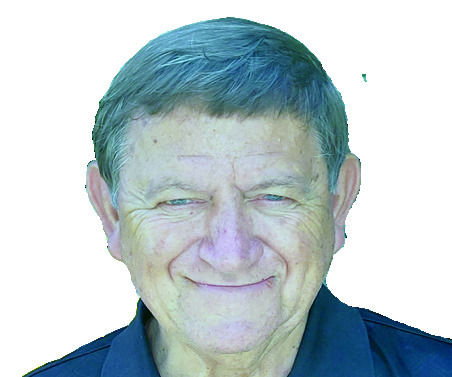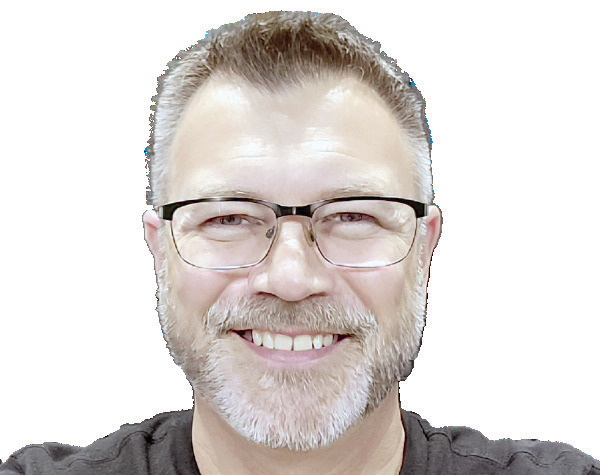Dakoda Pettigrew: The hateful embrace

The temperature in the Old Senate Chamber reached a sweltering 90 degrees — but within Charles Sumner raged a fire hotter than any that could be accurately recorded.
On May 19, 1856, the avowed abolitionist senator from Massachusetts rose to deliver a 112page speech on “The Crime Against Kansas.” As with Lincoln, the Kansas-Nebraska Act stirred a flame of defiance within Sumner. “My soul is wrung by this outrage,” he wrote, “and I shall pour it forth.”
By 1856, Kansas was a war zone with battle lines drawn by two rival territorial governments, each representing the pro-slavery and anti-slavery aspirations of the nation. The pro-slavery territorial government — elected fraudulently by Missouri pro-slavery “border ruffians” — was organized at Lecompton, and rapidly “adopted a uniquely repressive set of statutes,” one historian wrote, which made it a felony to question the legality of slavery and a capital offense to aid fugitive slaves.
In 1854, William Seward told Southern slaveholders, “since there is no escaping your challenge, I accept it on behalf of the cause of freedom,” adding, “We will engage in a competition for the virgin soil of Kansas, and God give the victory to the wide which is stronger in numbers as it is in right.” Similarly, Missouri’s David Atchison remarked, “We are playing for a mighty stake; if we win we carry slavery to the Pacific Ocean…the game must be played boldly.”
What began as a war of words descended into a war of honor, destiny, and supremacy — and guns, with the “empire for slavery” on one side and “free soil” on the other, marked equally in time by acts of violence and brutality.
To Sumner, the solution was clear: the anti-slavery, settler-majority government at Topeka must be recognized, and Kansas must be admitted as a free state. It was less a political question than a moral one: slavery was a disease, and its extension threatened to poison the Midwest, as it had the South and, in ways, the whole country.
A decade earlier, Sumner had called the annexation of Texas “a wicked scheme” of conquest to extend slavery. Kansas was no different. “It is the rape of a virgin territory,” Sumner told the Senate in his fiery, two-day address, “compelling it into the hateful embrace of slavery.”
A New York newspaper correspondent reported that the Senate galleries were “thronged to their utmost capacity” and that “all the doorways were completely blocked up with listeners.”
Stephen Douglas’s “popular sovereignty,” Sumner told the Senate, had resulted in “popular slavery.” Sumner called for “freedom in Kansas,” and unmercifully assailed Douglas as “the squire of slavery…ready to do all its humiliating offices.” He then took aim at South Carolina Senator Andrew Butler, whose “mistress… though ugly to others, is always lovely to him…I mean the harlot slavery.” Listening in astonishment, Douglas reportedly said, “That damn fool will get himself killed by some other damn fool.”
Concluding, Sumner called on the “overthrow” of the “slave power,” a vindication of “those rights of human nature,” an end to the “crime” of slavery, and the “confirmation of liberty.” Douglas rose, asking, “Is it his object to provoke some of us to kick him as we would a dog in the street, that he may get sympathy upon the just chastisement?” A Tennessee Congressman said, “Mr. Sumner ought to be knocked down, and his face jumped into.”
South Carolina Congressman Preston Brooks was incensed. Not only was Butler an insulted relative, but South Carolinians were irate and demanded that someone rise to defend their honor. He “felt it to be my duty to… avenge the insult.” Some suggested that Brooks challenge Sumner to a duel. But duels implied a challenge of equals; Sumner was “an insulting inferior,” and must be punished “[with] a cane or horsewhip.” Fearing that Sumner, his “superior in strength,” might “wrest” a whip from him, Brooks resolved to use a cane instead.
Just before two o’clock on May 22, Brooks entered the Senate chamber and approached Sumner. After a brief remark, Brooks raised his cane and hit the Massachusetts statesman over the head. As Sumner stumbled and fell, Brooks continued to hit him for a full minute. “Every lick went where I intended,” Brooks recalled. Satisfied, the South Carolinian casually walked away. Sumner, unconscious and bleeding heavily from several gashes on his head, was carried away. “It would not take much to have the throats of every abolitionist cut,” Brooks later boasted.
Sumner and Brooks quickly became heroes on their sides of the Mason-Dixon Line. In the Northeast, countless “indignation” meetings took place. Northerners expressed outrage by hanging and burning Brooks in effigy. In the South, supporters held celebratory gatherings, gifting Brooks innumerable canes, one of which had a hand that resembled a “human head, badly cracked and broken.”
“[Must] we speak with bated breath in the presence of our Southern masters?” William Cullen Bryant wrote. “Are we to be chastised as they chastise their slaves?” The “vulgar abolitionists” were “getting above themselves,” a Richmond newspaper editorialized. “They must be lashed into submission.”
Physically and mentally battered, Sumner spent four years away from his Senatorial duties. When the Massachusetts government offered to pay his medical costs, Sumner told a friend, “let it all go to suffering Kansas.”
On June 4, 1860, Sumner gave his first speech in the Senate since his departure. Speaking on Kansas, Sumner decried “The Barbarism of Slavery” for four hours and looked forward to the day when “the Declaration of Independence, now reviled in the name of slavery, will once again be revered as the American Magna Carta of human rights.”
Eulogizing Lincoln five years later, Sumner said, “Liberty has been won. The battle for equality is still pending.” To those who stood opposed, he added, “The cause may be delayed, but it cannot be lost; and all who set themselves against it will be overborne, for it is the cause of humanity.
Dakoda Pettigrew is a senior political science and history undergraduate student whose father went to school in Cassville. He lives in Tennessee and can be reached at pettigrewdakoda6@
gmail.com.






